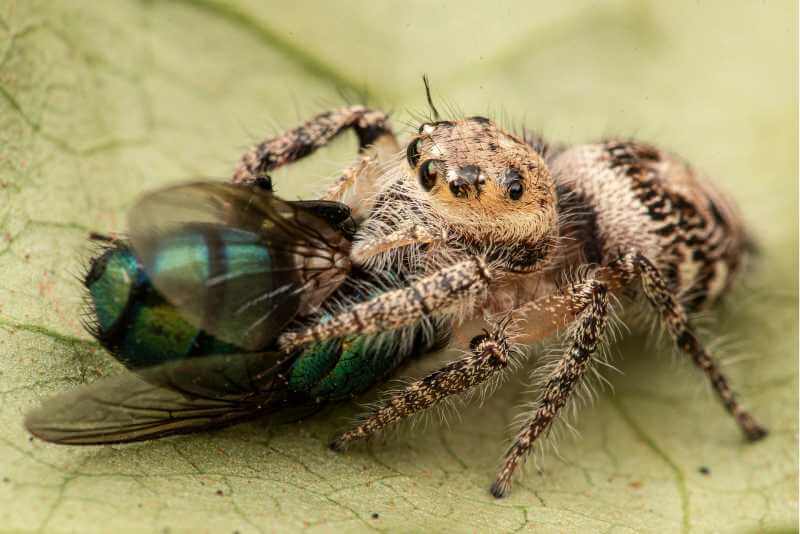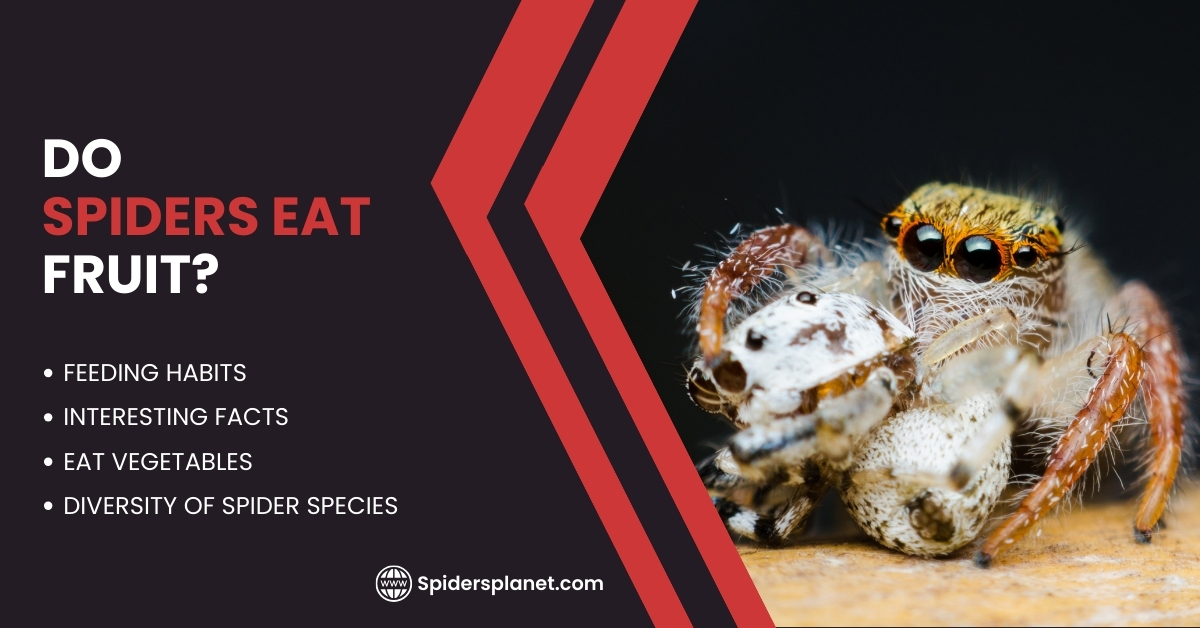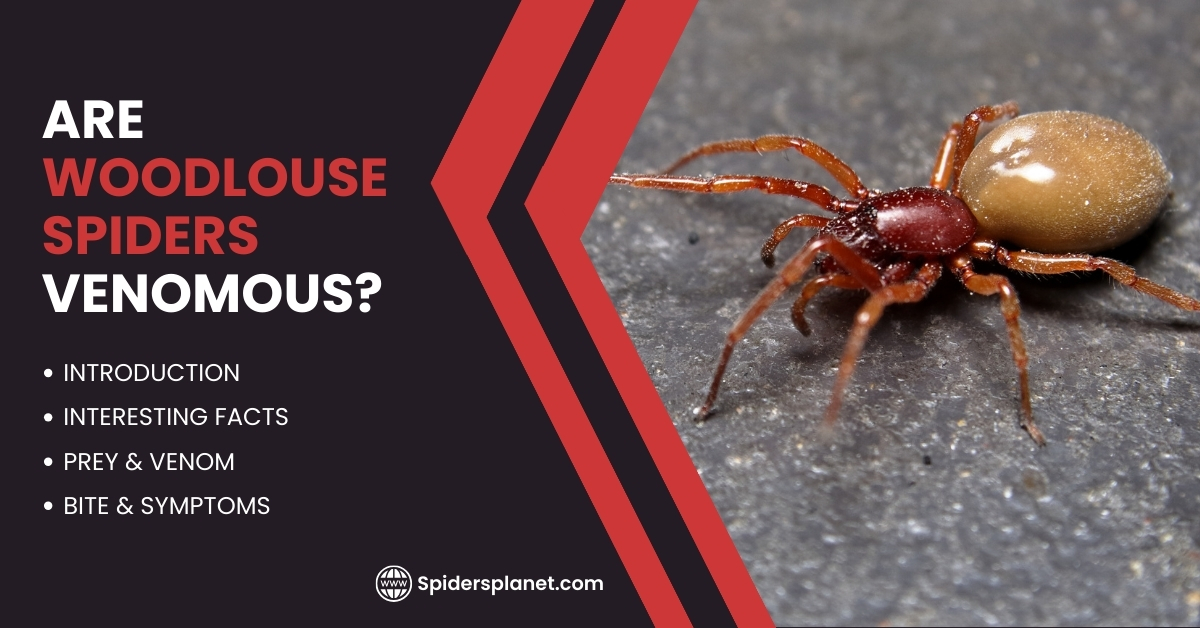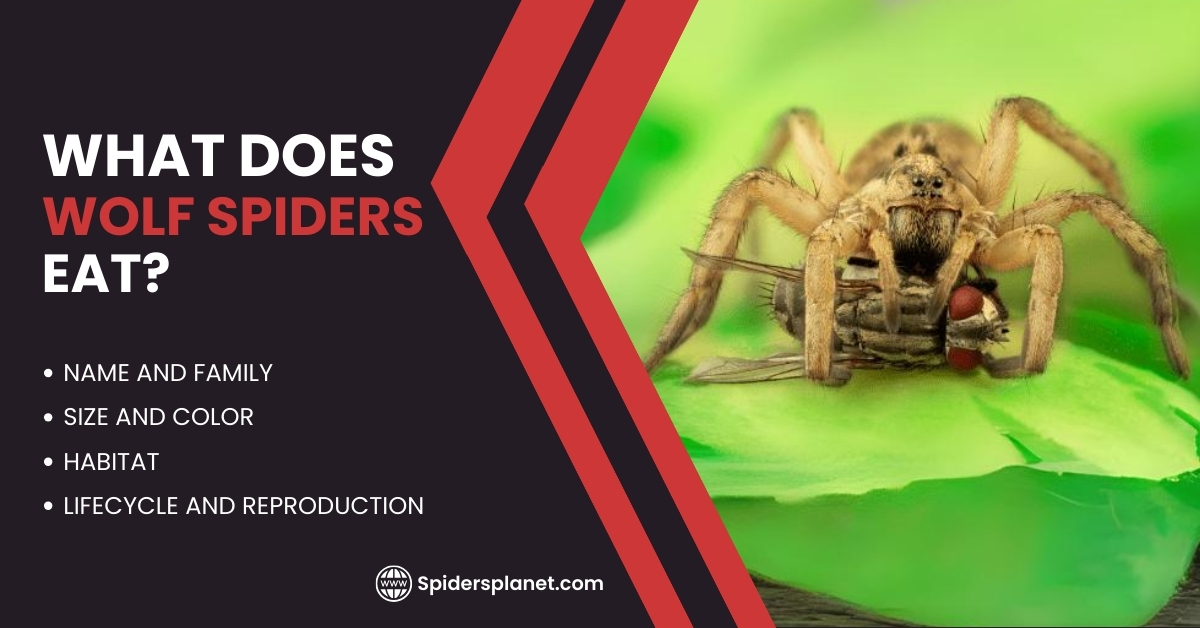As a pet owner, one of the considerations that come with taking care of any animal is understanding their dietary needs. This includes ensuring they have enough to eat and monitoring when food should be provided.
As anyone who has had problems with picky eaters knows, finding the right balance between underfeeding and overfeeding can be difficult.
If you’re considering adopting a jumping spider as your next pet or already own one, it’s important to understand how long they can go without eating in order to keep them healthy.
So, throughout this post, we will examine just how long jumping spiders can survive without food and address other important information related to feeding them correctly.
How Long Can Baby Jumping Spiders Live Without Food?
Jumping spiders are very resilient when it comes to going without food. However, young baby-jumping spiders will struggle when faced with extended periods of food deprivation.
Spiderlings need plenty of nutrients, proteins, and fats for their growth and development. All of these, are obtained from their prey, which mainly consists of small insects and arthropods.
But, if a baby spider goes for long periods without eating this can negatively impact their growth, development, and overall health.
Because of this, it’s crucial for baby jumping spiders to start feeding on small insects and other arthropods as soon as possible to ensure proper growth and maturation.
With that said, the exact duration a baby jumping spider can live without food varies depending on the species and environmental conditions, but generally, they can survive for a few days up to a week without food.
What Happens To A Jumping Spider When It’s Starving?
When a jumping spider is starving, it experiences several physiological and behavioral changes that can negatively impact its overall well-being. Some of the effects of starvation on jumping spiders include:
- Decreased energy levels: A starving jumping spider will have reduced energy levels due to the lack of nutrients and calories. This can lead to lethargy, making the spider less active and less capable of hunting for prey.
- Weakened immune system: A lack of proper nutrition weakens the spider’s immune system, making it more susceptible to diseases and infections.
- Slower growth and development: For young jumping spiders, an inadequate food supply can result in stunted growth and slower development, potentially affecting their ability to reach adulthood and reproduce.
- Weight loss and muscle atrophy: Prolonged periods without food can cause weight loss and muscle atrophy in jumping spiders, as their bodies start to break down muscle tissue for energy.
- Altered behavior: Starvation can lead to changes in a jumping spider’s behavior, such as increased aggression or desperation when searching for food. They may also become less cautious and more prone to taking risks while hunting.
- Reduced reproductive success: A malnourished jumping spider may have a lower chance of finding a mate, and females may produce fewer eggs or have difficulty producing viable offspring.
- Death: Ultimately, if a jumping spider cannot find food for an extended period, it will exhaust its energy reserves and succumb to starvation.
To avoid these negative consequences, jumping spiders must maintain a consistent diet of insects and other arthropods, which provide the essential nutrients needed for their growth, survival, and reproduction.

Do Jumping Spiders Often Go Without Eating?
Jumping spiders, like most predators, do experience periods of time without eating. The frequency and duration of these fasting periods depend on several factors, including:
- Availability of prey
- Environmental conditions
- The spider’s hunting success
In the wild, jumping spiders may go without food for a few days or even up to a week or more, depending on the circumstances.
For instance, during colder months or in areas where prey is scarce, they might have difficulty finding food. However, pet jumping spiders should be fed regularly to ensure proper nutrition and overall health.
How Often Should Jumping Spiders Eat?
The frequency at which jumping spiders should eat depends on factors such as their size, age, species, and activity level. In general, a feeding schedule of every 1-3 days is appropriate for most jumping spiders. Here are some guidelines to follow:
- Spiderlings (baby spiders): Young jumping spiders have higher metabolic rates and require more frequent feeding to support their growth and development. Feeding them daily or every other day with small prey items, such as fruit flies or pinhead crickets, is recommended.
- Juvenile spiders: As they grow, juvenile jumping spiders still need regular feeding but can go slightly longer between meals. Providing food every 2-3 days is usually sufficient.
- Adult spiders: Adult jumping spiders have slower metabolic rates than their younger counterparts. Feeding them every 2-4 days with appropriately sized prey, such as adult fruit flies, small crickets, or other suitable insects, is typically adequate.
It’s essential to monitor the health and behavior of your jumping spider to determine if the feeding frequency is appropriate. If the spider appears lethargic, loses weight, or seems to be constantly searching for food, it may require more frequent feeding.
Just remember that each jumping spider is unique, and individual needs may vary. Adjusting the feeding schedule based on the specific needs of your pet will help ensure its health and well-being.
What If Your Jumping Spider Is Not Eating?
If your jumping spider is not eating, there could be several reasons for this behavior. It is essential to evaluate the situation and determine the possible cause to ensure the health and well-being of your pet. Some common reasons for a jumping spider not eating include:
- Stress: A newly acquired or recently rehoused jumping spider may refuse food due to stress as it acclimates to its new environment. Give your spider some time to adjust, usually a few days to a week, before attempting to feed it again.
- Molting: Jumping spiders stop eating during the molting process. Before shedding their exoskeleton, they will typically refuse food. Once the molting is complete, they should resume eating within a few days.
- Incorrect prey size or type: Your spider might not eat if the prey is too large or not the preferred type. Offer different types of prey or smaller-sized insects to see if your spider shows interest.
- Temperature and humidity: Jumping spiders thrive in specific temperature and humidity ranges. If these conditions are not met, it can affect their appetite. Ensure that your spider’s enclosure has appropriate temperature and humidity levels based on its species requirements.
- Illness or injury: If your spider is not eating and appears lethargic, weak, or injured, it could be suffering from an illness or injury. In such cases, consult with an experienced veterinarian who specializes in invertebrates for advice on proper care and treatment.
- Advanced age: Older jumping spiders may have a decreased appetite as they approach the end of their life cycle. If your spider is elderly, reduced feeding frequency might be expected.
If your jumping spider continues to refuse food after addressing potential issues, it is crucial to consult with an expert or veterinarian to determine the underlying cause and ensure the health of your pet.
Conclusion
So hopefully this article has answered all your questions as to how long can jumping spiders go without food. By understanding their dietary needs and feeding habits you find it much easier to help maintain their overall health and wellbeing.
However, if your spider stops eating or shows signs of distress, take the time to evaluate its living conditions and consult with an expert if needed.



